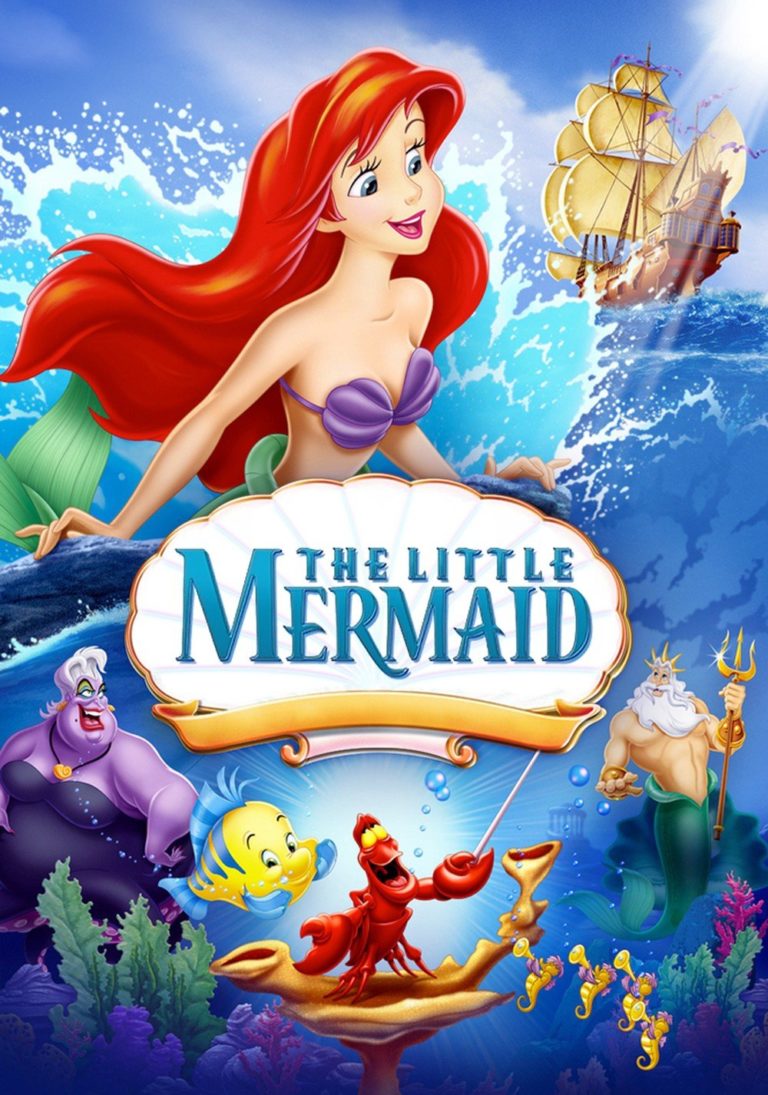“Delightful”

| None | Light | Moderate | Heavy | |
|---|---|---|---|---|
| Language | ||||
| Violence | ||||
| Sex | ||||
| Nudity |
What You Need To Know:
This is an allegorical movie with strong Christian overtones. Because Ariel loves Eric, she is willing to give up everything to be with him. Because Triton loves his daughter, he is willing to give up his kingdom for her. These are illustrative of the supreme example set by God when He sent His son Jesus to die for our sins. The final scene resonates Genesis 2:24: “For this reason a man will leave his father and mother and be united to his wife.” The film is superbly colorful, incredibly well-animated and in two adorable musical numbers, “Under the Sea” and “Kiss the Girl,” the sea literally becomes a living orchestra. Some scenes will delight the audience to tears. Please note that there is no offensive wedding scene in this re-release as reported in many exposés of the original release and of Disney
More Detail:
When Ariel saves Eric, a handsome prince, in a shipwreck, she falls in love with him. Eric is entranced by the sea princess’ lovely voice. Ariel is then approached by the evil sea octopus witch, Ursula, who promises to turn her into a human being in exchange for her voice. However, Ariel must get the Prince to kiss her before sunset on the third day, or she will become the property of Ursula.
Warned by friends that Ursula is a demon, Ariel nonetheless signs a contract that binds her “for eternity.” The deal is a trick, though, for though Ariel is able to join the human world, she no longer possesses the one trait that initially won her the Prince’s love.
Now with legs, Ariel seeks out Eric but is unable to speak to him without her voice. Notwithstanding, the two begin to fall in love. When they almost kiss one romantic evening, Ursula intervenes. Disguised and using Ariel’s voice, Ursula lures the Prince away. Having deceived him, Ursula plans to marry Prince Eric immediately. With the sun about to set on the wedding, Ariel and her friends spring into action. Ursula is exposed, the wedding thwarted and Ariel gets her voice back, but alas the sun has set.
Transformed back into a mermaid, Ursula now takes Ariel prisoner until Triton intervenes. What will Triton give for his daughter? Ursula demands his kingdom, which Triton concedes in an act of incomprehensible self-sacrifice.
Aside from the mythology used to move the story along, the-good-overcomes-evil premise has some strong Christian overtones, specifically in the area of self-sacrifice. Because Ariel loves Eric, she is willing to give up everything she has known to be with him. Because Triton loves his daughter, he is willing to give up his kingdom for her. These are illustrative of the supreme example set by God when He sent His only begotten son Jesus to die for our sins.
The movie positively depicts a well-run household with a respected father who knows how to lay down rules effectively and wisely. The final scene resonates Genesis 2:24: “For this reason a man will leave his father and mother and be united to his wife” as Triton again demonstrates his wisdom by giving up his daughter so that she can marry Eric.
The film is superbly colorful, incredibly well-animated and wonderfully orchestrated. Many scenes will simply delight the audience to tears, particularly two adorable musical numbers, “Under the Sea” and “Kiss the Girl,” in which the sea, teeming with life, literally becomes a living orchestra. There’s also a hilarious scene where Sebastian the crab fends off an overzealous French chef who wants to include him in the main course.
Please explain to your children and friends the difference between myth and biblical reality, and then go and enjoy the film, appreciating the biblical principles presented therein. Christians should rejoice that this film does not support a nominalistic (or New Age) worldview.
It should be noted that Ariel does not go back to being a mermaid after her redemption from her “fall,” just as man does not go back to his innocent state when he is redeemed by Jesus Christ from the consequences of the biblical “Fall.” Furthermore, there is no offensive wedding scene in this re-release as reported in many exposés of Disney.
The theatrical re-release of one of Disney’s THE LITTLE MERMAID coincides with the 20th Century Fox release of ANASTASIA. Both are magnificent movies, and parents should be happy that they have some family-friendly fare at the box office. THE LITTLE MERMAID is more colorful and humorous, while ANASTASIA is more poignant and emotive.


 - Content:
- Content: 




